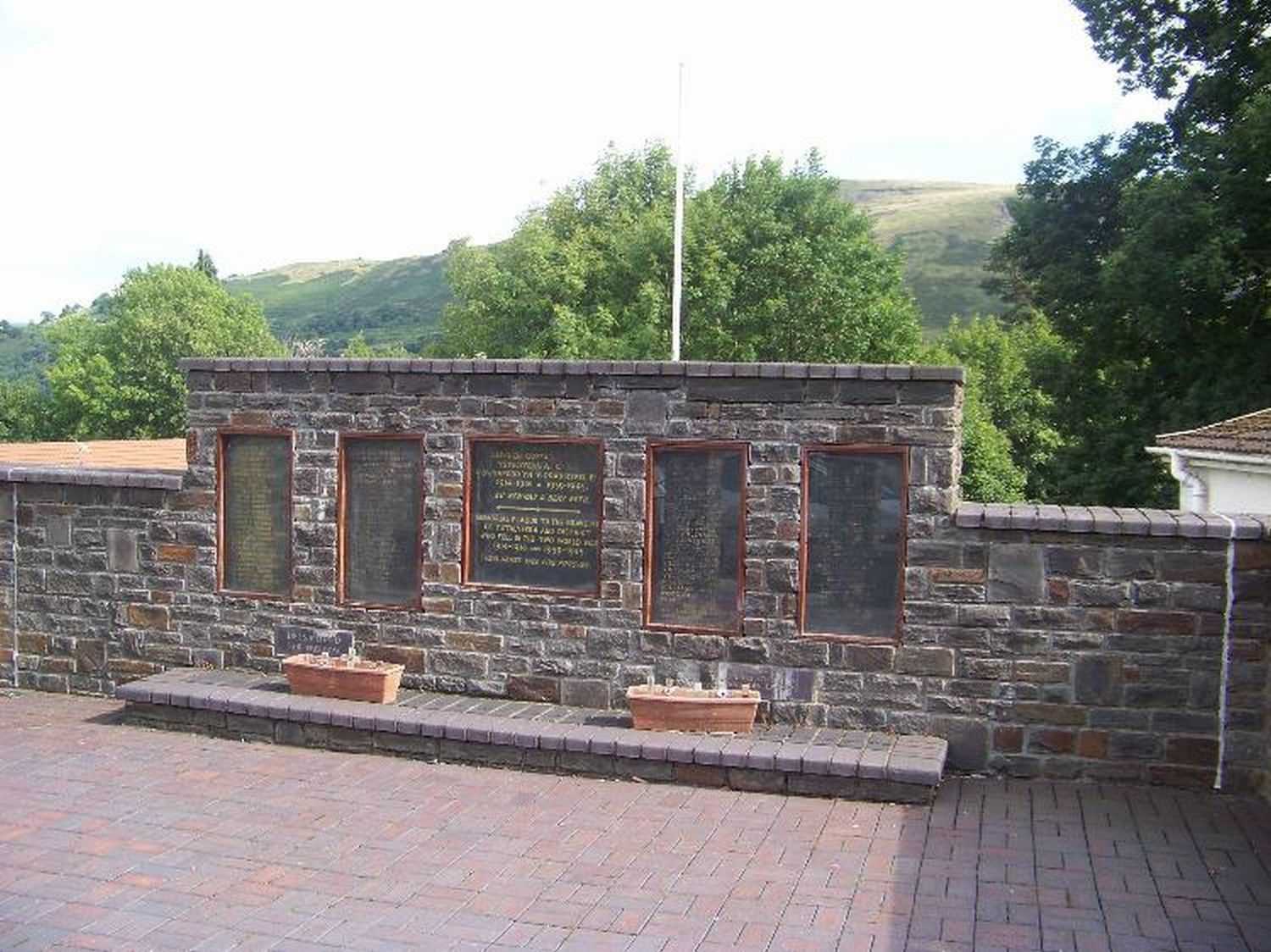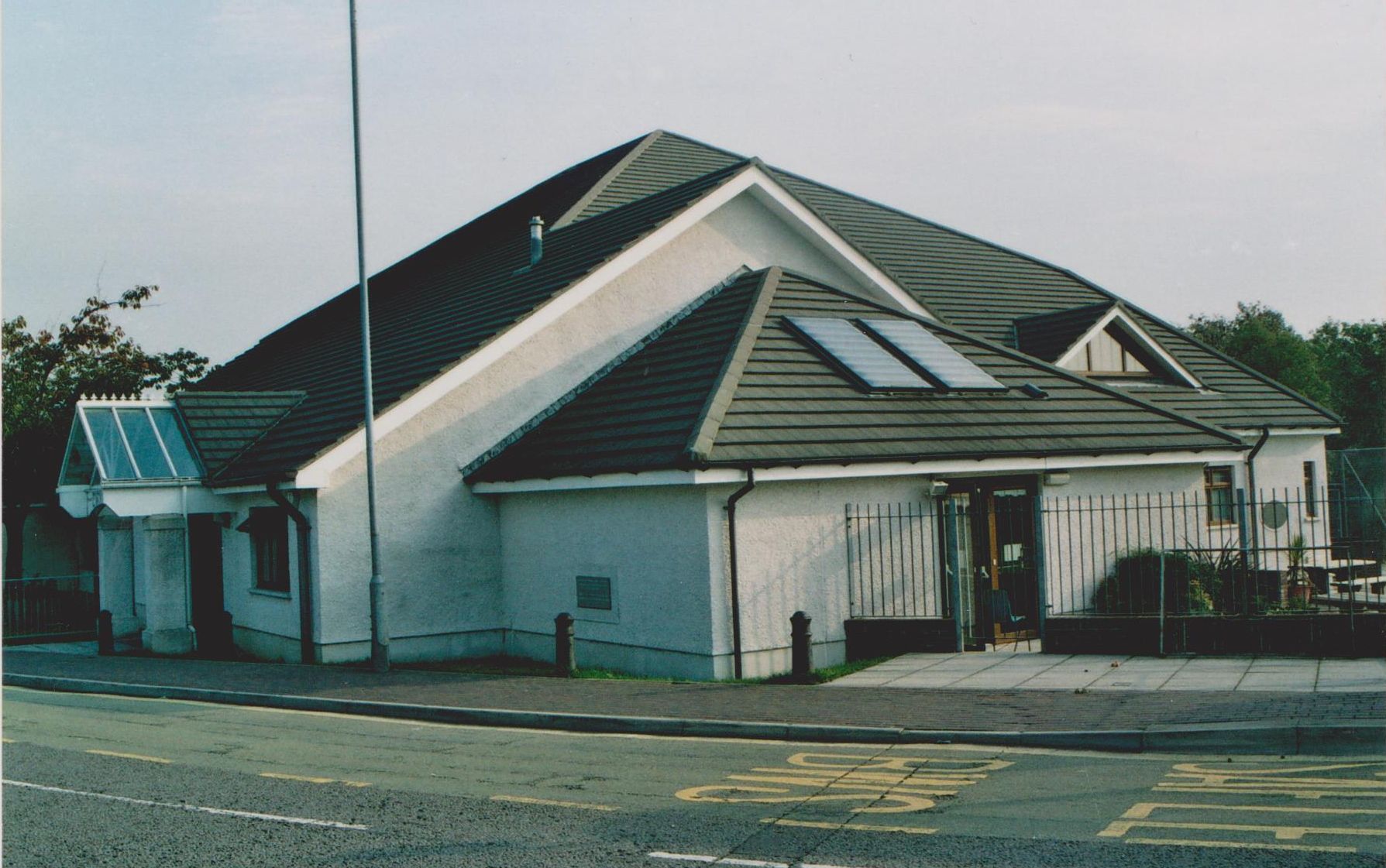Ystalyfera - South Wales

All research by YEARGROUP
Val Trevallion



Cwmllynfell Community Hall


Cwmllynfell Drum Head Memorial
 Cwmllynfell War Memorial
Cwmllynfell War Memorial
Harry Morgan
The information on Harry Morgan has been compiled from a number of sources, including the Commonwealth War Graves Commission.
Harry Morgan is remembered on the Ystalyfera County School War Memorial, but not on the Ystalyfera War Memorial. This is probably due to his having moved to London before he joined up as he was killed in action while serving with the Honourable Artillery Company.
| Name | Harry Morgan |
| Date of Death | 1st November 1916 |
| Place of Death | Mesnil |
| Age at Death | 22 |
| Unit and Regiment | 1st Btn. Honourable Artillery Company (HAC) |
| Rank | Private |
| Service Number | 5287 |
| Additional Information | Joined the Honourable Artillery Company's Reserve Batallion in October 1915. Drafted to France to join the 1st Btn in June 1916. Killed at Mesnil on 1st November 1916. |
| Cemetery | MESNIL COMMUNAL CEMETERY EXTENSION - FRANCE; III. D. 18. |
| Local Memorials |
Ystalyfera County School War Memorial Cwmllynfell War Memorial Book = Ystalyfera County School THE FIRST 50 YEARS |
| Family Details | Born at Llanguicke 1895. Living at Brynherbert Cwmllynfell. Son of John H MORGAN (Born Ystradgynlais 1869) Tailor and Draper and Cassie MORGAN (Born Australia 1869) Milliner of Post Office Cwmllynfell (Married 1894) |
| Known Brothers | Bertie [Clifford] MORGAN (Born Llanguicke 1899-1914) Buried September 1914, Cwmllynfell Cemetery |
| Known Sisters | Hilda (Born Llanguick 1903) |
From the Labour Voice newspaper, 11th November 1916:-
CWMLLYNFELL STUDENT KILLED IN ACTION
Deep sympathy is felt with Mr and Mrs John Morgan (postmaster) Cwmllynfell, at the sad news they received on Tuesday morning informing them that their son, Private Harry Morgan, had been killed in action. Private Morgan, who belonged to the H.A.C., had only been in the firing-line four months. Prior to his enlisting he was a student at Cardiff College, and there was undoubtedly a bright career in front of him as a school- master. About two years ago another son, Bertie, was killed in an accident at the Cwmllynfell Colliery.
From the Labour Voice newspaper, 18th November 1916:-
A memorial service will be held at Cwmllynfell Chapel on Sunday evening next in memory of the late Private Harry Morgan of the H A C, who was killed in action lately. Private Morgan was the son of Mr. and Mrs. John Morgan Post Office Cwmllynfell to whom the deepest sympathy is extended. The Rev D. Jeremy Jones will officiate. This will be the first memorial service to be held at Cwmllynfell Chapel.
From the Labour Voice newspaper, 18th November 1918:-
A SCHOOL TEACHER’S TRIBUTE
TO THE LATE PRIVATE HARRY MORGAN CWMLLYNFELL
BY B T JONES MA YSTALYFERA
As the tide of battle rolls on and as the superiority of the Allied Armies in France is heralded by the announcements of forts and villages captured here and there along the line, we at home are brought very vividly to realise - by a perusal of the casualty lists - the extent of the tremendous sacrifice in life these successes entail. As may unfortunately be expected, the list of the Ystalyfera County School Old Boys who are taking part in the Armageddon is not immune from the toll of war; and following so soon after the announcement of the death of another popular old pupil, W J Hopkin of Craigcefnparc, there came last week the sad news that Private Harry Morgan HAC of Cwmllynfell, had fallen in action.
As a lad, Harry attended the Cwmllynfell Boys’ School, under Mr Isaac, where he held a unique record of 10 years regular attendance, which was acknowledged by the Glamorgan Education Committee by the presentation of a handsome set of books. Winning an entrance scholarship he entered the Ystalyfera County School in September 1906, where he had a remarkably successful career as a student. After securing the Senior Certificate of the Central Welsh Board, he attended the school the following year as a student teacher and, in order to gain further experience as a teacher prior to entering college, he taught for another year at Cwmllynfell School. In October 1914, he entered the Cardiff University College as a degree student and although he was there for only one session, his work for the year gave every indication of a very promising and brilliant career for him as a student, for he passed the intermediate examination in four subjects - Welsh, mathematics, English and Latin; and in addition, passed in an extra test in Welsh, which would allow him to attend the honours class in that subject during the following section, a privilege which is denied to all but the ablest students. Here his short but brilliant career as a student ended, for though he had made preparations for spending another year in college, he along with his eligible fellow students, volunteered for the army and was admitted into the Hon. Artillery Company in November 1915. After some eight months training in this country he left for France last July and alas, a few days ago after four months active service came the sad tidings of his fall in action.
And now, when I think of the fine strapping youth who, when I last saw him in his military uniform, looked an ideal soldier - though originally destined for a more peaceful vocation in life - my memory takes me back to the period of his school days. Well do I recollect him as a forward in the school team, tall, erect, well built, ever conspicuous by the abundance of thick, jet black curly hair, always in the van of the rushes, revelling in hard work and invariably at hand whenever a chance of scoring presented itself. A tireless worker, he was besides, a thorough sportsman and scrupulously clean player and his fine example as the leader and his genial disposition made him very popular with his fellow players. As he was on the football field, so he was on the field of battle - he was not content unless in the thick of the fight. In a very cheerful letter to me, there was never a despondent note in Harry’s correspondence, written from France on September 19th he states: “you will see that we have very little to complain about but most of us would like to join our 1st Battalion in the trenches.” Popular with the schoolboys, he was not less popular amongst his fellow soldiers in his platoon and no further tribute can be paid to his memory than that contained in a letter sent by Sec-Lieutenant Trewitt informing his parents of the sad news: “During the time he has been with C Company he has behaved splendidly through the trying times we have had recently and was held in great esteem by all of us.”
His all too brief career at college warranted one and prophesying for him a brilliant future in the scholastic world. He had intended completing his degree by taking the honours course in Welsh and Prof Powell, with whom he regularly corresponded since he joined the army, held a very high opinion of his abilities and confidently expected him to secure a high position in the final examination for his degree.
The deepest sympathy of his old schoolmates at the Ystalyfera County School will go out to his sorrowing parents and younger sister, who have respectively been bereft of a noble and promising son and a kind and affectionate brother.
The noble response of the Ystalyfera County School Old Boys to their country’s call and the records of their gallant deeds on the field of battle should serve to stimulate the patriotism of the present pupils and kindle within them a just pride in the glorious heritage handed down to them by the brave lads of an “older day.”
B T JONES
COUNTY SCHOOL YSTALYFERA